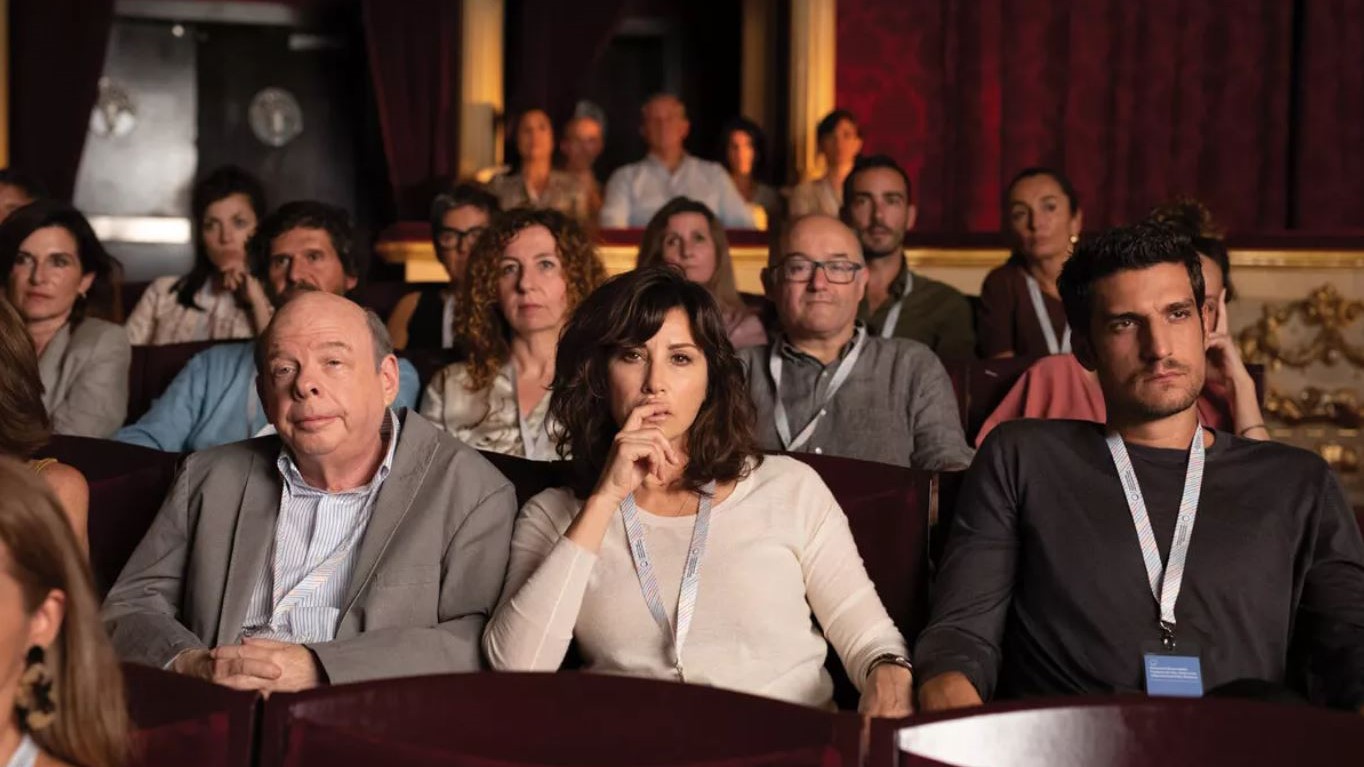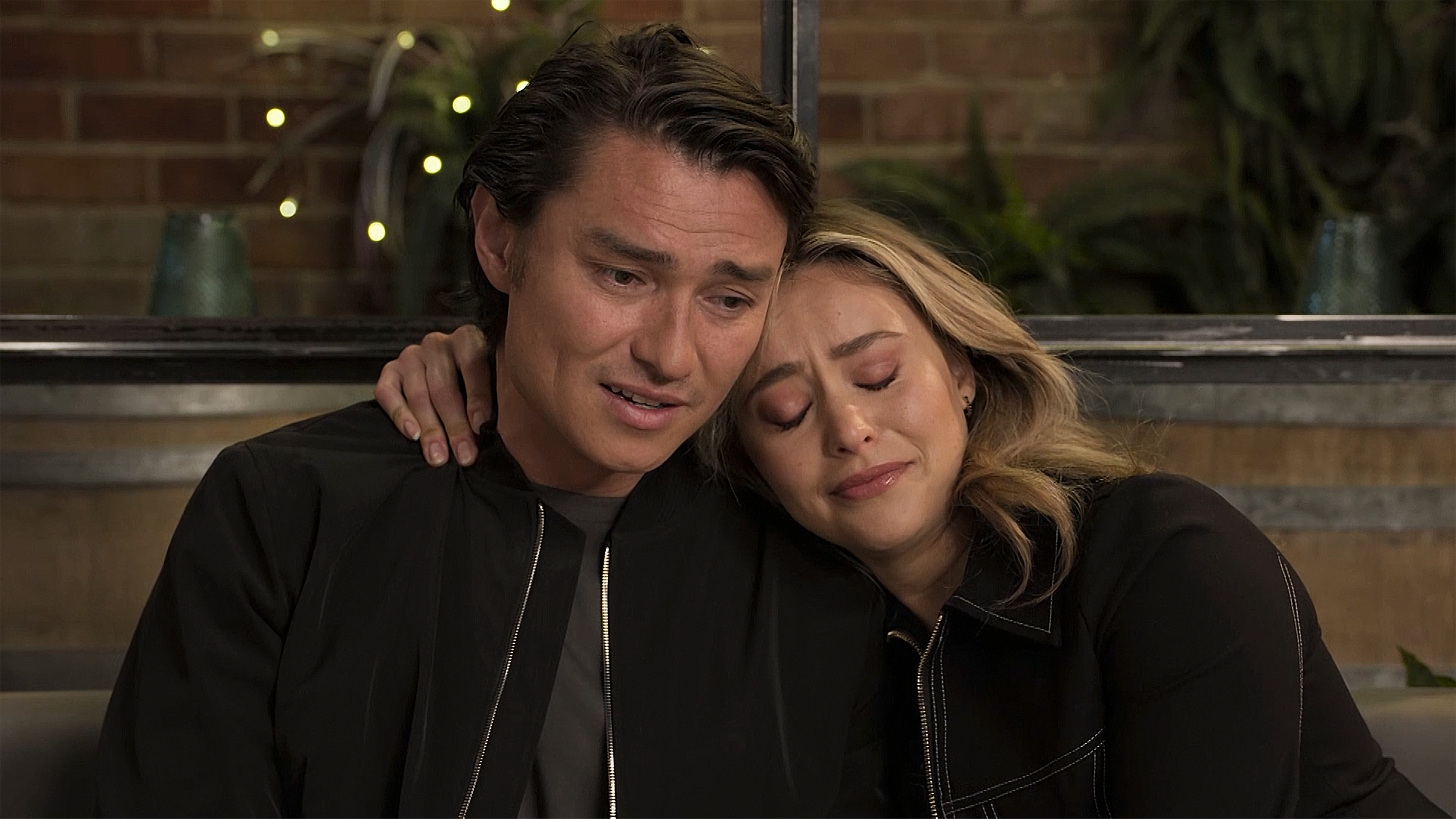What to Watch Verdict
Woody Allen's aging perspective gives gravitas to a story that would otherwise be featherweight in his filmography.
Pros
- +
Shawn makes Mort into enough of a charmer that we understand the failed, academic artist's appeal
- +
Vittorio Storaro's cinematography is just gorgeous, capturing the Spanish landscape with beauty and romance
Cons
- -
There's almost nothing in this story that Woody Allen hasn't explored before, and better
There are some artists that people would, and you imagine should, do anything to work with. Their accomplishments are so significant, even undeniable, that even the most comfortable or coddled star will take a pay cut or risk a ding to their career just for the creative opportunity. With Rifkin’s Festival, that artist is of course Vittorio Storaro, a three-time Oscar-winning cinematographer so acclaimed and extraordinary that even for free it’s a privilege — an honor — for him to photograph them.
Woody Allen, meanwhile, is another story. Notwithstanding his own contributions to American cinema, Allen's reputation has perhaps justifiably diminished in recent years. If nothing else his work has not lived up to what many would consider the salad days of his career.
Nevertheless, the director’s latest is a slight, suitably engaging story of an aging would-be artist reckoning with his failures in the shadow of the success of others younger than him. Despite the sour grapes of the protagonist charmingly played by Wallace Shawn, Allen navigates his way through a cinematic history that applies the parodic instincts of his early career to the perspective that only a person can offer when their life is closer to the end than the beginning.
Shawn (The Princess Bride) plays Mort Rifkin, a film critic and former educator who joins his publicist wife Sue (Gina Gershon) at the San Sebastian film festival, where she is babysitting an acclaimed but unoriginal young French director named Philippe (Louis Garrel). Sue can barely conceal her infatuation with Philippe, but the more time the two of them spend together, the more uncomfortable Mort becomes, eventually disappearing into dreams and fantasies inspired by classic black and white films like Citizen Kane, Breathless, 8 ½ and Persona.
But while nursing his own unrealized ambitions to become a consequential novelist, Mort begins to feel some of the physical aches and pains of getting older. At the suggestion of a colleague named Tomas (Enrique Arce), Mort decides to see a local Spanish doctor named Joanna “Jo” Rojas (Elena Anaya) who’s married to philandering, narcissistic artist Paco (Sergi Lopez).
Immediately developing a crush on Jo, Mort repeatedly manufactures reasons to go and seek her medical advice, spending most of the time cultivating a connection with her through phony ailments and some shared cultural references. Jo’s volatility with Paco eventually mirrors Mort's own deteriorating relationship with Sue, forcing him to decide if his developing affection for the physician is worth risking a marriage that is already on unsteady ground.
For Allen, so much of this is familiar territory that if you’ve (understandably) had enough of his work then it will add little to your opinion or perception of the filmmaker. But those who know and perhaps still enjoy some of his earlier, “zanier” movies will find some charming notes in his comical recreations of old art films, whose visual integrity is undermined by Mort’s self-destructive (or possibly just mercilessly honest) realizations not just about his relationship with Sue but himself as he wrestles with a dream to become a great and significant artist in a way the prevents him from fully becoming an artist at all.
Young director Philippe doesn’t seem quite as bad as Mort characterizes him, but Allen successfully draws out the excruciating delight generated from repeated, even inescapable, forced interactions between an earnest doofus and the more knowledgeable observer who cannot stand being in his presence.
As Mort, Shawn injects a healthy dose of self-reflection and even occasional humility into his fruitless comparisons with Philippe, as well as a believable charm into his interactions with Jo, a much less likely romantic partner now than Allen might have suggested a few decades ago, but a companion who nevertheless connects with her in a way that her louse of a husband does not.
Gershon has the wonderful self-aware superficiality of a publicist, trying to manage her husband when interactions threaten to become fraught with an intrusive sense of reality. She also contributes a convincing sensuality to the role that legitimizes the chemistry with Garrel’s Philippe as well as the unexciting comfort and consistency of her marriage to Mort.
Finally, Anaya is like so many of Allen’s romantic heroines — a bit of a fantasy figure of education and perspective (of course she loves all the old movies that consume Mort), but she plays their dynamic in exactly the right way as we recognize there’s no reasonable future for her and Shawn’s character. However, her vulnerability makes her susceptible to the unthreatening emotional warm-blanket of his attention.
Then of course there’s Storaro, whose credits are so impeccable (Apocalypse Now, The Last Emperor, The Conformist, etc.) that it feels like an honor as a viewer to see his work on screen. His last four films, including this one, have been Allen’s, a choice I’ll leave others to judge, but he captures these characters in these environments with such beauty and romance that what happens to them cannot help but become intoxicating.
Regarding Allen, it feels like a longtime fan would be as justified in embracing the unchallenging familiarity of this story as you would to decide you never wanted to watch it. But like almost all of his films, Rifkin’s Festival uses a light touch to dig deep into ideas that are worth exploring, whether or not you specifically want to see him doing so. Given the world’s attitude towards him and the absence of any news he’s making additional films, the fact that this film is pointed in its conclusion but still open-ended seems appropriate.
Any opportunity to see Storaro photographing interesting actors in beautiful settings is a real treat, and if nothing else Rifkin's Festival gives audiences that opportunity that feels exciting, odd and thought-provoking all at once.
Rifkin's Festival is playing in select U.S. theaters starting Jan. 28.
Todd Gilchrist is a Los Angeles-based film critic and entertainment journalist with more than 20 years’ experience for dozens of print and online outlets, including Variety, The Hollywood Reporter, Entertainment Weekly and Fangoria. An obsessive soundtrack collector, sneaker aficionado and member of the Los Angeles Film Critics Association, Todd currently lives in Silverlake, California with his amazing wife Julie, two cats Beatrix and Biscuit, and several thousand books, vinyl records and Blu-rays.












